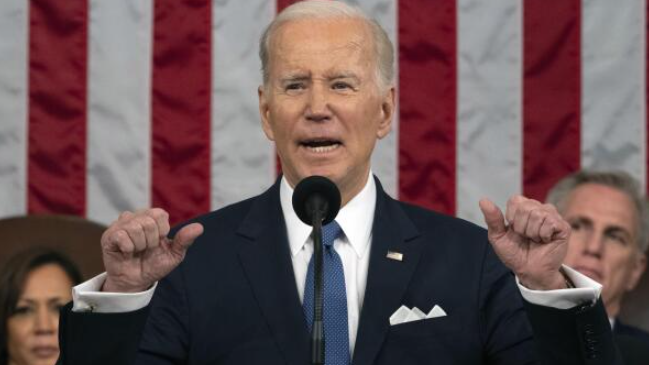
Breaking News: $7.5 Billion in EV Charger Funding Stalled, Zero Chargers Built
In a striking development, the ambitious plan initiated by the Biden administration and Congress in 2021 to revolutionize America’s electric vehicle (EV) infrastructure has hit a significant roadblock. Despite allocating a massive $7.5 billion for the construction of tens of thousands of EV chargers nationwide, not a single charger has been installed to date, creating a potential hurdle for President Joe Biden’s re-election campaign and his climate change agenda.
“Struggling with Weight Management? Click Here for Helpful Solutions!”
The program, conceived to facilitate the transition to electric vehicles and combat climate change, is grappling with a host of bureaucratic and logistical challenges. States and the charger industry cite complex new contracting and performance requirements as major obstacles in accessing federal funds. Although over $2 billion has been authorized for state use, less than half have initiated contractor bidding processes, let alone started construction.
This delay has a ripple effect on consumer attitudes towards EVs in the U.S., where demand for such vehicles is steadily growing. The lack of charging infrastructure remains a primary deterrent for many potential buyers. The federal estimate indicates the need for a sixfold increase in chargers by the end of the decade. However, the first charger funded by this bipartisan infrastructure law is unlikely to be operational before 2024.
The Biden administration’s goal of having half of the vehicles sold in the U.S. be electric by 2030 hinges significantly on this charging network. However, the sluggish pace of development is not only hampering this target but also inviting criticism from Republican opponents, who are attempting to cut funding for the project. This political friction could increase the chances of a rollback of these efforts should a Republican administration come into power in 2025.
“Struggling with Weight Management? Click Here for Helpful Solutions!”
Industry experts express frustration over the slow rollout. Arcady Sosinov, CEO of FreeWire Technologies, and others in the field highlight the critical need for a more expedient deployment of these chargers.
The bipartisan infrastructure package, signed into law by Biden, earmarked $7.5 billion specifically for EV chargers. Presently, the U.S. has about 180,000 chargers, including 41,000 fast chargers. The National Renewable Energy Laboratory estimates that 1.2 million public chargers will be needed by 2030, including 182,000 fast chargers, to meet demand.
Federal officials defend the program’s pace, arguing that establishing a new initiative in each state and ensuring private sector compliance with stringent requirements takes time. The ultimate objective is a standardized, reliable network nationwide. Gabe Klein, executive director of the Joint Office of Energy and Transportation, emphasizes the need for a methodical approach to achieve lasting results.
“Struggling with Weight Management? Click Here for Helpful Solutions!”
The main portion of the funds, $5 billion, is allocated for fast chargers along interstate highways under the National Electric Vehicle Infrastructure program. These chargers must meet rigorous standards, including operational reliability and accessibility.
While some states like Ohio and Pennsylvania have made progress, many others have not started the bidding process. Complexities in state-level administration and industry readiness are significant contributing factors to these delays.
“Struggling with Weight Management? Click Here for Helpful Solutions!”
The Biden administration remains optimistic, expecting a surge in charger installations beginning in 2024. Despite challenges, officials anticipate reaching the 500,000 charger target by 2026, four years ahead of schedule. This optimism, however, is tempered by the reality of the current impasse, raising questions about the feasibility of achieving a robust, nationwide EV charging network within the envisioned timeline.


Joe and dems just act rarely ever plan anything we just pay taxes for their stupidity.
The recent announcement of an $8 billion investment in a new high-speed railway raises concerns. Critics argue that this massive expenditure might not yield the promised benefits of faster travel and economic growth. There are worries about potential environmental impacts, financial feasibility, and the neglect of other crucial public infrastructure needs. This investment could be seen as an overly ambitious project with uncertain returns, overshadowing more pressing and practical transportation improvements. Biden administration 🙂